COULD a forgotten benefactor of Ross-on-Wye be honoured with a blue plaque?
One of the forgotten benefactors of Ross-on-Wye is musician Bernhard Molique Carrodus, a violinist who played for Queen Victoria and toured with famous singers at the end of the 19th Century.
Gill Richards, who conducted the research into Mr Carradus said:“Sadly, Bernhard is no longer remembered in Ross, yet his music is still studied extensively worldwide.
“I think Bernhard should be considered worthy of a Blue Plaque to honour him in Ross and this could be placed by the Corn Exchange or the Royal Hotel, two venues where he regularly played.”
Bernhard, born in 1866, was the son of John Tiplady Carrodus, a child violin prodigy schooled by Wilheim Bernhard Molique in Stuttgart, who named his son in honour of his tutor and mentor.
But over time Bernhard was considered more talented than his father and became a sought-after violin solo artist in his own right.
Bernhard played at the Three Choirs Festivals and was in demand all over the country, both as a solo artist and in the orchestra.
He was summoned to Balmoral to play for Queen Victoria in 1899 and toured with famous singers of the era.
Bernhard also obtained the role of presidential chairman of the Savage Club in London where friends and contemporaries of this gentlemen’s club included Sir Edward Elgar, who wrote violin solos for him.
Bernhard later inherited his father’s violin, a Stradivarius, a claim that many music students have spent a lot of time researching the authenticity of this.
Bernhard was also a composer and wrote two mazurkas, (a folk dance) a Scotch Rhapsody, and Romance in G plus technical studies for violin students.

Sadly, his national and international career was curtailed due to early deafness. His retirement was a great loss to the music world at the time but in retirement he became a great benefactor to Ross.
Bernhard, a widow with two children married Gertrude Sarah Bradney of Wharton Hall in 1908 and moved to the Lea and became active members of the church of St John the Baptist, where he held concerts.
Apart from his anticipated musical events, Bernhard and Gertrude were active members in Ross society. He was president of Ross Music Society, Ross Rowing Club.
Gertude, like Bernhard, was also active in Ross and well known. She organised fruit collection for jam making and was influential in the routing of the road, which is now the A40 Ross to Gloucester Road.
A concert in The Corn Exchange in 1915 raised funds for the Ross First World War Hospital in Carodoc Villas and Westfield.
Carrodus Smoking Concerts were held in The Corn Exchange and The Royal Hotel. These were popular and well attended as personal friends and top musicians of the era would join him.
Bernhard and Gertude were at the pinnacle of Ross society, his death notice from 1935 reads like an edition of Burke’s Peerage given his fame and the connections of the Bradney family. In his obituary, Bernhard is credited as giving generously his services to worthy causes in Ross.

While the Carrodus family grave is in Highgate Cemetery, Bernhard is interred in the graveyard of St John the Baptist the Lea. The grave bears no visible inscription.
However, Marion Martinthe Churchwarden, discovered the plot and he is interred alongside his mother-in-Law, Sarah Decima Bradney joined later by Gertrude who died in 1941.
Ms Richards concluded: “I wonder if any musicians in the area would be interested in playing Bernhard Carrodus creations?”
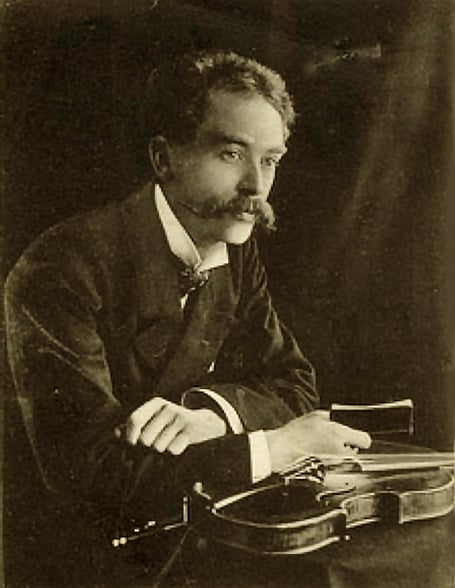
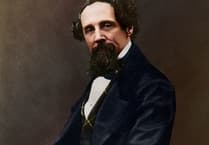
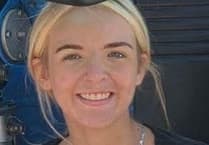
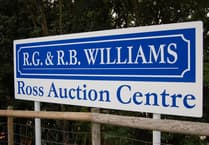
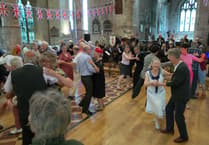
Comments
This article has no comments yet. Be the first to leave a comment.